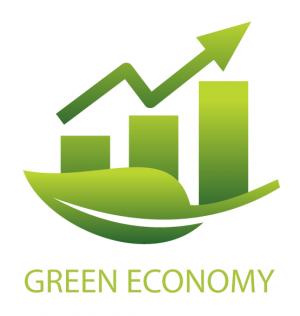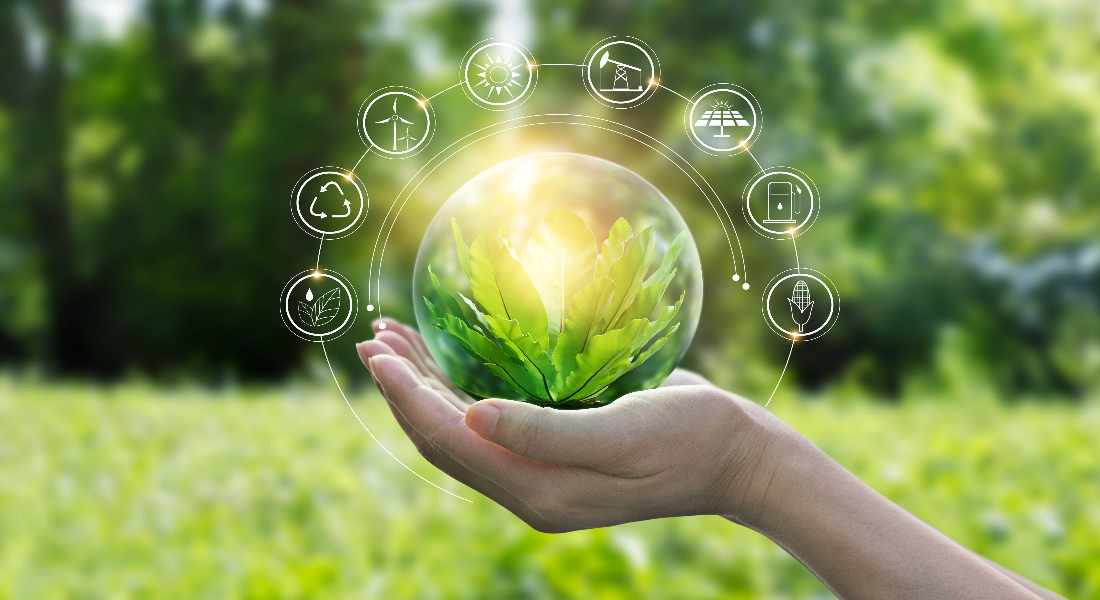The world needs to transition from its current unsustainable model towards a new one called the green economy to prevent catastrophic consequences like climate change or mass extinction of species due to pollution or habitat loss caused by greenhouse gas emissions.
Companies switching towards this model will create jobs while limiting pollution via increased recycling programs, reduced dependence on fossil fuels and partnerships with NGOs working towards sustainability goals such as renewable energy generation or conservation of habitats for animals and plants.
Nigeria was supposed to begin transition to a green economy in 2020 through the Economic Sustainability program but the dependence on oil revenue stopped it. The green economy is possible in Nigeria since it will eradicate poverty, create jobs and improve wellbeing of Nigerians.
This article explores the importance of the green economy to nations of the world. Take a seat and learn more about the green economy.
Table of Contents
What is the Green Economy?
The green economy is a concept that deals with a sustainable and environmentally friendly business model. The conventional economy is running out of resources, and the green economy is the solution to this problem.
Many countries have already adopted a green economy and are experiencing positive results. As a result, nations are taking action to limit global warming, reduce pollution, control carbon emissions and create jobs. In addition, the green economy will solve many social issues such as income generation for underprivileged communities.

The green economy is about creating a sustainable society.
The global environmental and economic crises are interconnected with the decline of the traditional economy. Traditional industries used a lot of energy and resources and were mostly based on producing goods instead of services.
In addition, a few corporations controlled the traditional economy, leading to economic inequality and social gaps. Along with that, pollution caused by companies in the traditional economy is a major contributor to global warming.
Green companies use less energy than traditional ones but produce more goods without worsening climate change. Therefore, promoting a green economy makes sense as it limits carbon emissions while creating jobs.
Read Also: The Problems Facing Nigeria as a Country: Is Nigeria Still the ‘Giant Of Africa’
The global green economy is not just about the environment; it’s also about creating new opportunities globally via new business models based on sustainability instead of scarcity. This means creating an inclusive society where everyone can access products they need at reasonable prices via local manufacturing or online retailers using digital currency such as bitcoin or blockchain technology.
Importance of the Green Economy
The green economy is about creating a sustainable society. It’s about building a world that works for everyone.
Living in a green economy usually enhances your physical and mental well-being as it promotes ecologically sound practices. Examples include:
- Cutting down on air conditioning during hot months.
- Switching to eco-friendly products.
- Reducing your carbon footprint and buying local produce instead of imported food products produced with harmful chemicals.
Green economies promote community involvement. People who live in these systems are healthier and happier since they have secure jobs, healthy food and eco-friendly housing materials. Green economies also reduce external dependency since the entire society isn’t dependent on conventional economic activities for employment.
The green economy is a response to the global environmental and economic crisis. Companies switching to a green model can increase profits through reduced costs, waste diversion and recycling programs, efficient use of materials and partnerships with sustainability-focused entities such as universities or NGOs.
Many countries are embracing this concept through tax incentives for businesses switching to green models or by providing training for employees in these companies to become sustainability experts. In addition, governments can incentivize businesses by changing regulations or taxes that affect their bottom lines, such as taxes on carbon emissions or sales of luxury products with harmful ingredients.
Principles of Green Economy
According to a report of Principles, Priorities, and Pathways for Inclusive Green Economies”, inaugurated on July 16th, 2019, at the UN High-Level Forum on Sustainable Development in New York, five basic principles of Green Economy were established, which include:
The Good Governance Principle: The green economy is guided by integrated, accountable, and resilient institutions
- The Wellbeing Principle: A green economy prompts people to build and celebrate prosperity.
- The Justice Principle: The green economy promotes equity within and between generations
- The Planetary Boundaries Principle: The green economy safeguards, restores, and invests in nature
- The Efficiency and Sufficiency Principle: The green economy is geared to support sustainable consumption as well as sustainable production
- The Good Governance Principle: The green economy is guided by integrated, accountable, and resilient institutions.
Subscribe to our newsletter for a weekly dose of premium content.
The Components of the Green Economy
- The first component is the reduction of pollution, waste, and resource use. This means reducing waste and pollution while increasing efficiency. Regarding resource use, it means ensuring that resources are being used in ways that aren’t draining them out of the ecosystem.
- The second component is technology transferred from developed economies to developing countries. This helps developing countries develop faster and also helps them improve their environment without having to start from scratch.
- The third component is ensuring that people in developing countries can participate in the global economy, even if they don’t have access to many resources.
To successfully promote a green economy, leaders must support a regenerative economic system that supports society’s needs rather than corporate greed or consumerism’s desires. A regenerative economic model sustains rather than degrades natural systems through solar power production and recycling resources such as metals into new substances such as fuel cells.
Businesses don’t have to support the planet through renewable energy production solely. They can also help create this by funding solar power generation projects or promoting electric cars over petrol.

The green economy changes everything
Although traditional economists have promoted an unsustainable system for decades, environmentalists are gaining popularity with their ideas for a more environmentally friendly future— especially because this future looks so attractive! The green economy has many advantages for everyone living on Earth— we need enough political will to implement it!
We must implement the green economy with a transition plan to minimize the negative effects of changes in economic models. The plan must include measures to end current unsustainable practices like over-reliance on fossil fuels and reducing carbon emissions in transportation sectors.
In addition, green transition plans must include strategies for educating the public about the changes to their lifestyle as they transition toward a green economy. This is because people will resist changes if they do not understand them.
Read Also: IMPORTATION OF GOODS INTO NIGERIA HAS DONE MORE HARM THAN GOOD TO THE ECONOMY
A green transition plan must be accompanied by efforts to educate the public about the changes to their lifestyle as they transition toward a green economy. Many people believe green technology is expensive and requires special knowledge, making them reluctant to adopt this system at first glance.
Therefore, education efforts are needed, so people understand how to adapt to make their lifestyle greener without changing it significantly. For example, individuals can switch electricity providers if their current provider does not use enough renewable energy sources. In addition, schools can be encouraged to use greener alternatives for educational supplies rather than traditional ones.
Conclusion
The world is currently undergoing rapid transformations due minutes with new technologies bringing us towards or away from a green economy. However, it seems we all have our own opinions about what this means. It’s important for everyone involved in creating or implementing a green economy system to consider all angles before making any drastic changes. Otherwise, we risk undoing all the hard work done so far towards a greener future for everyone!
Hey, you got a minute? Let’s talk about the green economy on Whatsapp.
About Author
Latest entries
 Business InsightsFebruary 1, 2024Introduction to Google Adsense and How to Earn With it
Business InsightsFebruary 1, 2024Introduction to Google Adsense and How to Earn With it Business InsightsDecember 5, 2023Top 10 Construction Companies in Nigeria
Business InsightsDecember 5, 2023Top 10 Construction Companies in Nigeria


